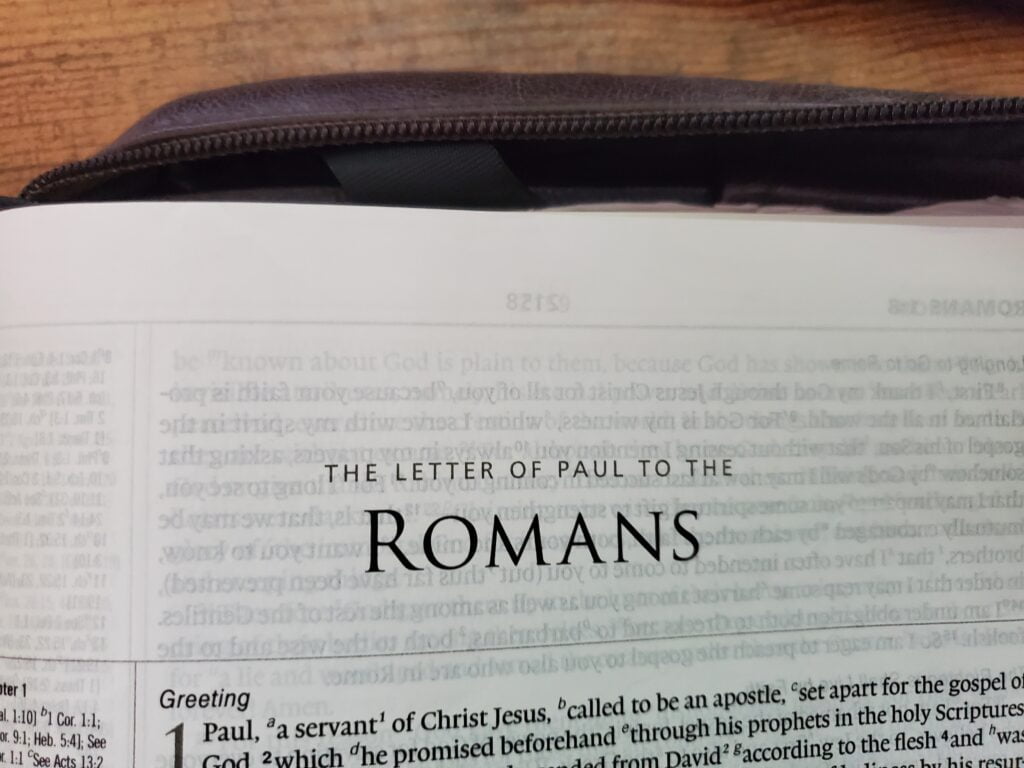⏱️ Estimated Reading Time: 4 min read
Romans 8:10-11, “10 But if Christ is in you, although the body is dead because of sin, the Spirit is life because of righteousness. 11 If the Spirit of him who raised Jesus from the dead dwells in you, he who raised Christ Jesus from the dead will also give life to your mortal bodies through his Spirit who dwells in you.”
From beginning to end, Scripture teaches us that God cannot dwell among sinners unless an atonement for their sin has been made. We see this, for example, in the Day of atonement and its rituals that annually cleansed the tabernacle and temple so that the Lord could continue to dwell in Israel (Lev. 16). It is also evident in the book of Revelation, where we read that those who enter the Lamb’s presence are washed in His blood (Rev. 7:9-17).
God is so pure that He cannot look at sin—He cannot tolerate it in His presence (Hab. 1:13). The Holy Spirit never could have come to dwell within us if Christ had not lived and died for His people. If Christ had not taken care of our sin by His sacrifice, and if our record had not been made one of righteousness via the imputation of Jesus’ perfect obedience, God never could have sent His Spirit to give us life (Gal. 3:10-14). This is one of the points of today’s passage. Romans 8:10 says, “the Spirit is life because of righteousness.” The Spirit can dwell within us to bring us new life because righteousness has been imputed to us, because Jesus’ law-keeping has been credited to our accounts and we are declared righteous in Him.
This life-giving Spirit is set in contrast to the death of the body. Death—bodily and spiritually—is the consequence for sin (Gen. 2:15-17). Apart from the indwelling Spirit of God, we can have no true life, because the absence of the Spirit proves that the Lord has not justified us, and without justification, there can be no life (Rom. 3:21-26). But if we have been justified, then we do have the Spirit, and though our physical bodies still die, this death is no longer for our transgressions as it is for the unbeliever; rather, it serves to evidence the fact that God has not yet removed the presence of sin from us. This death is only temporary, however; the Holy Spirit who dwells in us now will one day give new life to our mortal bodies. Our souls go to be with God at our deaths, and our bodies lie in the grave. At the last day, there will be a resurrection of our bodies, our souls will be reunited with them, and we will enjoy an imperishable, embodied existence (1 Cor. 15:42-49).
Salvation is a thoroughly Trinitarian work. If the Spirit dwells in us, then Christ dwells in us (Rom. 8:9-10). Christ and the Holy Spirit indwell one another, so to have the Spirit is to have Christ. But it is the Father’s Spirit as well, for by the Holy Spirit He raised Christ from the dead, and through the Spirit He gives life to the dead (v. 11). To experience the work of the Holy Spirit is to benefit from the work of all three persons of the Holy Trinity.
Coram Deo
Today’s passage is a good reminder that while our justification in Christ guarantees our salvation, God’s work of salvation will not be completed in us until we enjoy resurrected life in the new heaven and earth. Our Creator is not in the business of saving only our souls; He is redeeming the physical order as well. It, too, was originally very good—and will be so again. In the meantime, because it is being redeemed, we can enjoy the good gifts the Lord gives through the physical order.
The Life-Giving Spirit, Copyright (2021), Ligonier Ministries.



